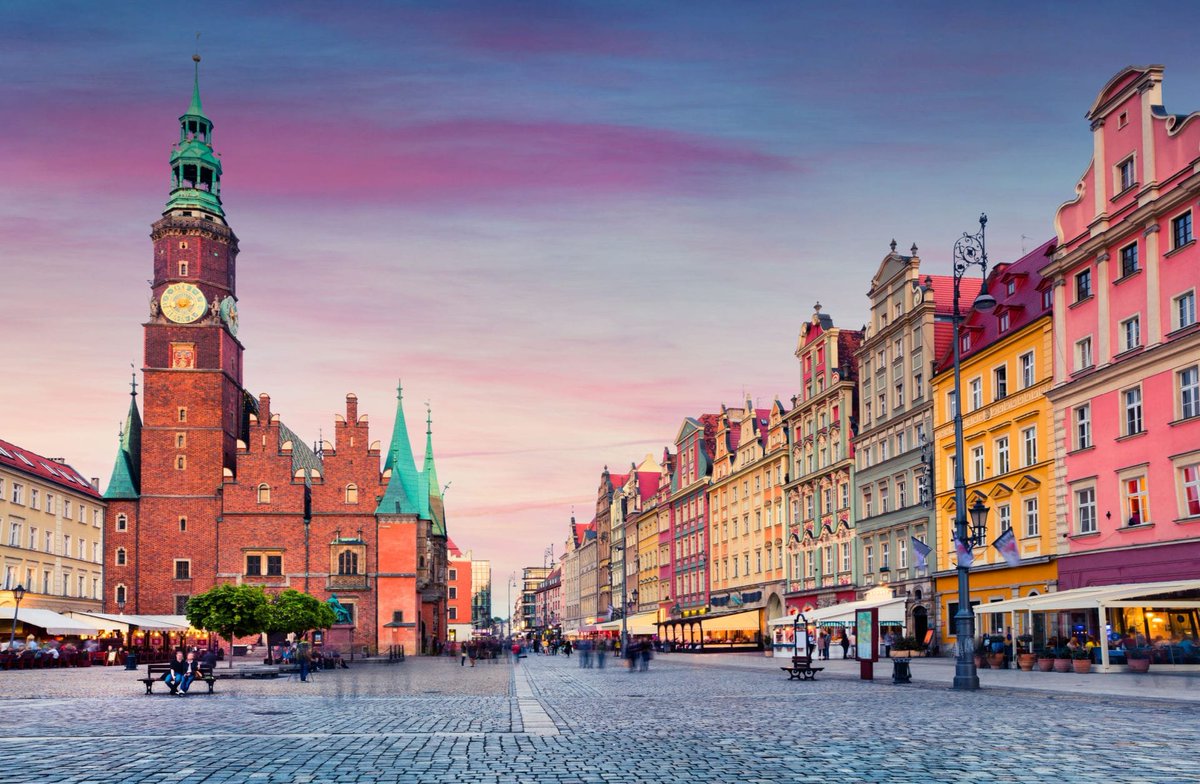This is Estonia:
- 1st country EVER to offer e-residency
- 100% of government services are digital
- Highest unicorns per capita in Europe
It’s quietly one of the most forward-thinking countries in the world.
Here are 7 hidden ways that “Mary’s Land” is leading the future:
- 1st country EVER to offer e-residency
- 100% of government services are digital
- Highest unicorns per capita in Europe
It’s quietly one of the most forward-thinking countries in the world.
Here are 7 hidden ways that “Mary’s Land” is leading the future:

Estonia has come a long way in a short time:
- Gained independence in 1991, starting as one of Europe’s poorest countries
- Instead of rebuilding Soviet-era systems, Estonia embraced digital transformation
By 1997, launched the "Tiger Leap" program to digitize education:
- Gained independence in 1991, starting as one of Europe’s poorest countries
- Instead of rebuilding Soviet-era systems, Estonia embraced digital transformation
By 1997, launched the "Tiger Leap" program to digitize education:
Now, the nation is undoubtedly one of the largest digital pioneers in the world.
- Most unicorns per capita in Europe (incl. Skype, Wise, Bolt)
- 38% of all startup sector companies connected to e-residence
Here are just 7 of the many digital innovations Estonia has adopted:
- Most unicorns per capita in Europe (incl. Skype, Wise, Bolt)
- 38% of all startup sector companies connected to e-residence
Here are just 7 of the many digital innovations Estonia has adopted:

1. E-Residency
Launched in 2014, Estonia became the first country to offer e-residency:
- Allows non-residents to start and manage EU-based businesses online
- Over 100,000 e-residents from 176+ countries have joined
Here’s the Estonian president himself on the program:
Launched in 2014, Estonia became the first country to offer e-residency:
- Allows non-residents to start and manage EU-based businesses online
- Over 100,000 e-residents from 176+ countries have joined
Here’s the Estonian president himself on the program:
Estonia doesn’t offer citizenship through e-residency, but it does provide pathways for those who move there and contribute to the economy.
With citizenship, you get access to the EU for both travel and business.
Estonian passport has visa-free travel to 180+ countries.
With citizenship, you get access to the EU for both travel and business.
Estonian passport has visa-free travel to 180+ countries.

2. Digital Nomad Visa
Introduced in 2020, it was the first in Europe.
There are 2 types:
1. Type C Visa: 90 days
2. Type D Visa: 1 year
Both require:
- Proof of remote work or your own business registered abroad
- Min. monthly income ~€3,500
Here’s more on the process:
Introduced in 2020, it was the first in Europe.
There are 2 types:
1. Type C Visa: 90 days
2. Type D Visa: 1 year
Both require:
- Proof of remote work or your own business registered abroad
- Min. monthly income ~€3,500
Here’s more on the process:
3. Simplified Taxes
Estonia’s tax system is digital and effortless:
- Filing taxes takes 3 minutes
- Flat 20% corporate tax applies only when profits are distributed
- Reinvested profits untaxed
Nomads and locals alike love the transparency & simplicity:
Estonia’s tax system is digital and effortless:
- Filing taxes takes 3 minutes
- Flat 20% corporate tax applies only when profits are distributed
- Reinvested profits untaxed
Nomads and locals alike love the transparency & simplicity:
4. Start a Business in 15 Minutes
Estonia’s fully digital system allows you to:
- Register a company online in only 2 hours
- Access EU markets seamlessly through e-residency
The fees are slightly higher than other countries, but the instant registration is worth it:
Estonia’s fully digital system allows you to:
- Register a company online in only 2 hours
- Access EU markets seamlessly through e-residency
The fees are slightly higher than other countries, but the instant registration is worth it:
5. X-Road: The Nation’s Backbone
A secure, decentralized system connects all government databases:
- Signing contracts online
- Registering businesses
- Managing taxes and healthcare
Now 100% of government services are online:
A secure, decentralized system connects all government databases:
- Signing contracts online
- Registering businesses
- Managing taxes and healthcare
Now 100% of government services are online:
6. E-Governance
@e_estonia announced that they are now a 100% digital nation.
0% bureaucracy.
- Births, marriages, and even deaths are registered online
- Notary services are online
- Voting in elections is done digitally
The first of its kind.
@e_estonia announced that they are now a 100% digital nation.
0% bureaucracy.
- Births, marriages, and even deaths are registered online
- Notary services are online
- Voting in elections is done digitally
The first of its kind.
https://x.com/e_estonia/status/1883795636237300164
7. The Future: The Invisible State
As far as Estonia has come, they’re certainly not finished.
Estonia aims to integrate AI into governance, creating an “invisible state.”
How? For example, by cutting red tape around regulations:
As far as Estonia has come, they’re certainly not finished.
Estonia aims to integrate AI into governance, creating an “invisible state.”
How? For example, by cutting red tape around regulations:
Of course, no nation is without its imperfections.
- Banking restrictions: Opening accounts as an e-resident can be tricky due to strict anti-money laundering laws.
- NOT a tax haven
- The weather...
Depending on what you’re looking for, these these could just be small hiccups.
- Banking restrictions: Opening accounts as an e-resident can be tricky due to strict anti-money laundering laws.
- NOT a tax haven
- The weather...
Depending on what you’re looking for, these these could just be small hiccups.
So, who is Estonia for?
- Entrepreneurs who want simplified taxes, e-residency, & EU market access
- Digital nomads who want simple and efficient systems
- Expats interested in a tech-first and innovative society
The emphasis is definitely for those who prioritise efficiency.
- Entrepreneurs who want simplified taxes, e-residency, & EU market access
- Digital nomads who want simple and efficient systems
- Expats interested in a tech-first and innovative society
The emphasis is definitely for those who prioritise efficiency.
What is it like to live there?
Well, Estonia ranked 24th out of 163 countries in the 2024 Global Peace Index.
It’s 12th in the world for safety.
So it’s peaceful, safe, and efficient.
But…
Well, Estonia ranked 24th out of 163 countries in the 2024 Global Peace Index.
It’s 12th in the world for safety.
So it’s peaceful, safe, and efficient.
But…
Though the nature there is beautiful the weather can be BRUTAL.
Winters are long and very cold.
For some (like myself) this may be a deal-breaker, for others the forward-thinking digital innovation might be enough to sway them.
Winters are long and very cold.
For some (like myself) this may be a deal-breaker, for others the forward-thinking digital innovation might be enough to sway them.

Personally, I am a fan of their work in digitization.
It’s worth noting as well that in 2017, Estonia considered to create a government-baked token, Estcoin allowing seamless transactions within the e-residency community.
It got rejected by the ECB and the project disappeared.
It’s worth noting as well that in 2017, Estonia considered to create a government-baked token, Estcoin allowing seamless transactions within the e-residency community.
It got rejected by the ECB and the project disappeared.

However, it's crucially not super tax efficient so I invite caution for those reasons to incorporate there.
But the trend is clear for Estonia.
They've been innovating for some time and will continue to do so.
I expect to see incredible things from them in the coming years!
But the trend is clear for Estonia.
They've been innovating for some time and will continue to do so.
I expect to see incredible things from them in the coming years!

P.S. For weekly actionable tips on how to unlock financial freedom for you and your family, join my newsletter!
Join here:
alepalombo.com
Join here:
alepalombo.com
Thank you for reading!
For more posts and insights on the future of global citizenship, follow @0x_ale
And repost this to share with your audience:
For more posts and insights on the future of global citizenship, follow @0x_ale
And repost this to share with your audience:
https://twitter.com/953352286255886338/status/1885047156324852092
• • •
Missing some Tweet in this thread? You can try to
force a refresh












